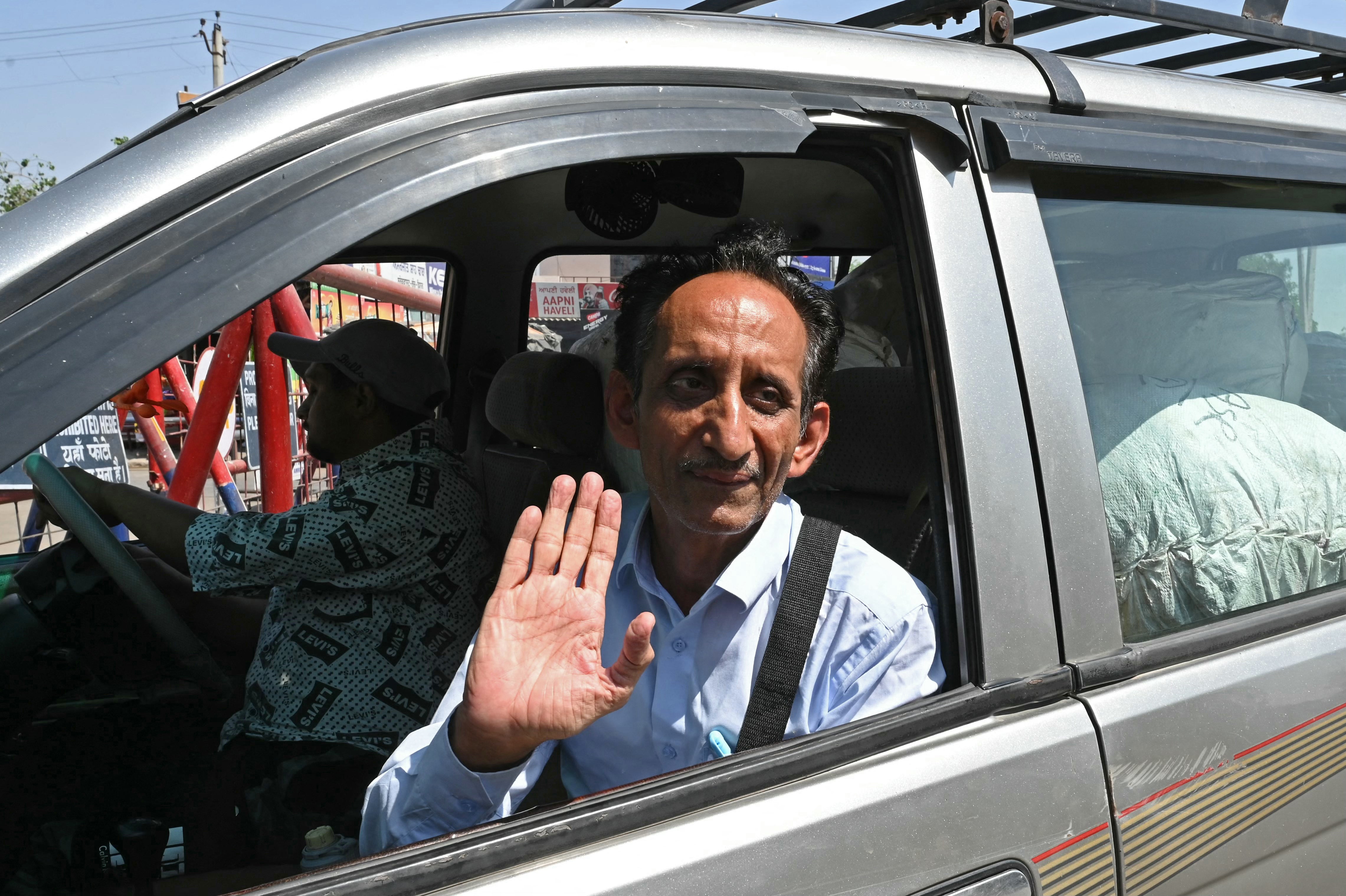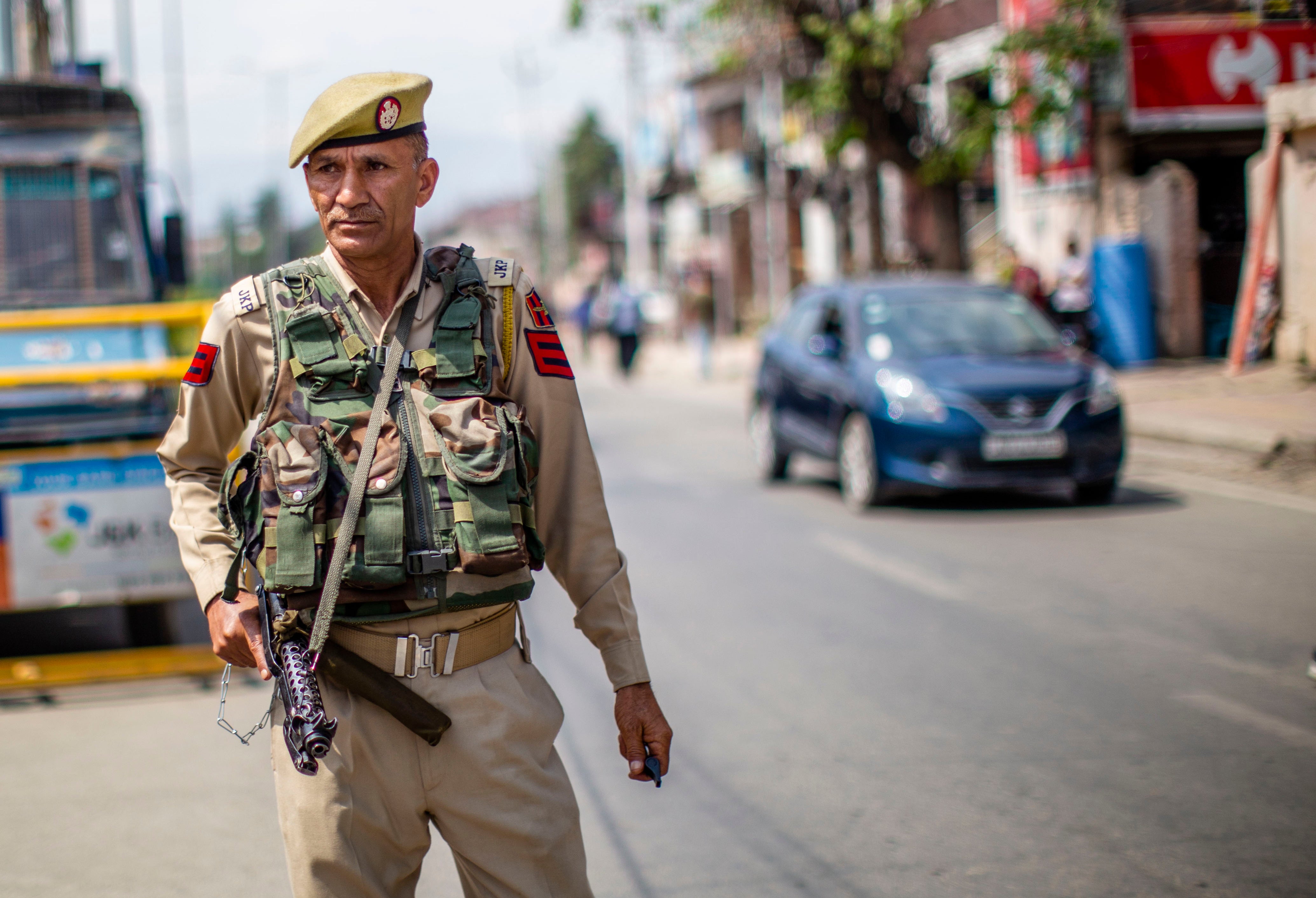India and Pakistan exchanged small arms fire along the contested Kashmir border for a fourth straight night even as New Delhi ramped up a security crackdown in the Himalayan region following a militant attack that left 26 people dead.
The Indian Army said it returned fire late Sunday after what it described as “unprovoked” shooting from several Pakistani positions along the Line of Control, or LoC, the 740km frontier separating the Indian and Pakistani administered parts of Kashmir. The Pakistani military did not comment.
No casualties were reported.
India and Pakistan have been on edge since the attack in the meadows of Pahalgam, a tourist hotspot in Kashmir, killed two dozen Indian holidaymakers and a Kashmiri guide.
Indian police have identified three of the four gunmen who allegedly carried out the attack, naming two Pakistani nationals and a Kashmiri man, and accusing Islamabad of harbouring and supporting terror groups operating in the region.
Pakistan has rejected the allegations and called for an independent investigation.
The federal territory of Kashmir has been the focus of two wars and frequent flare-ups between the nuclear-armed South Asian neighbours, which both claim the Muslim majority region in whole but control in part.
The latest attack has provoked widespread outrage in India, where Hindu majority public sentiment has rallied around calls for retribution. Some of the survivors and security officials have claimed that the attackers asked for names before singling out Hindu men.

In the wake of the attack, diplomatic tensions, already high, have escalated. India has suspended the Indus Waters Treaty, a critical river water sharing deal from 1960.
In response, Pakistan has closed its airspace to Indian commercial flights.
Both sides have also expelled each other’s diplomats and suspended visas.
India has launched a major crackdown in Kashmir, detaining nearly 500 people and conducting searches of over 1,000 homes and wooded areas. A police official said at least nine houses suspected of sheltering militants had been demolished.
The Indian military has conducted drills across the country in recent days. Some were routine, a defence official said, while others reflected heightened preparedness.
Political figures have urged caution. “This is the first time in 26 years that I have seen people coming out in this way…to say we are not with this attack,” Jammu and Kashmir chief minister Omar Abdullah told the state legislature. “It [militancy] will finish when people are with us, and today it seems like people are getting there.”
A group calling itself The Resistance Front, also known as Kashmir Resistance, initially appeared to claim responsibility for the attack in a social media post but later retracted it, claiming their account had been hacked.
Indian security analysts claim the group is a proxy for the Lashkar-e-Taiba, a proscribed armed group based in Pakistan that India has blamed for a number of attacks.
-stands-guard-at-the-Attari-Wagah-border-7r.jpeg)
Meanwhile, the US and China have urged the two countries to exercise restraint. Chinese foreign ministry spokesperson Guo Jiakun said Beijing hoped “India and Pakistan will exercise restraint” and “welcomed all measures that will help cool down the situation”.
A spokesperson for the US State Department said: “We have been in touch with the governments of India and Pakistan at multiple levels.” They added that Washington “strongly condemns the terrorist attack in Pahalgam”.
The US, which has close ties with both India and Pakistan, called for a “responsible resolution” to the crisis.
While publicly supporting India, the US has avoided criticising Pakistan. Analysts suggest the shifting geopolitical landscape has made New Delhi a more important strategic partner for Washington, particularly in its effort to counter China’s growing influence in Asia.
“This may worry Islamabad that if India retaliates militarily, the US may sympathise with its counter-terrorism imperatives and not try to stand in the way,” said Michael Kugelman, a South Asia expert based in Washington.

Hussain Haqqani, former Pakistani ambassador to the US and senior fellow at the Hudson Institute, said the US appeared disinterested in stepping in. “This time there is no US interest in calming things down,” he said.
Domestically, India has taken measures to clamp down on what it calls provocative content. Sixteen Pakistani YouTube channels with a combined following of more than 63 million users have been banned for spreading misinformation and inflaming communal tensions in the wake of the Pahalgam attack.
The banned platforms include news outlets such as Dawn, ARY News, Geo News and Samaa TV as well as channels run by prominent journalists and commentators.
Visitors to the blocked channels now see a message stating the content is unavailable due to government orders “related to national security or public order”.



